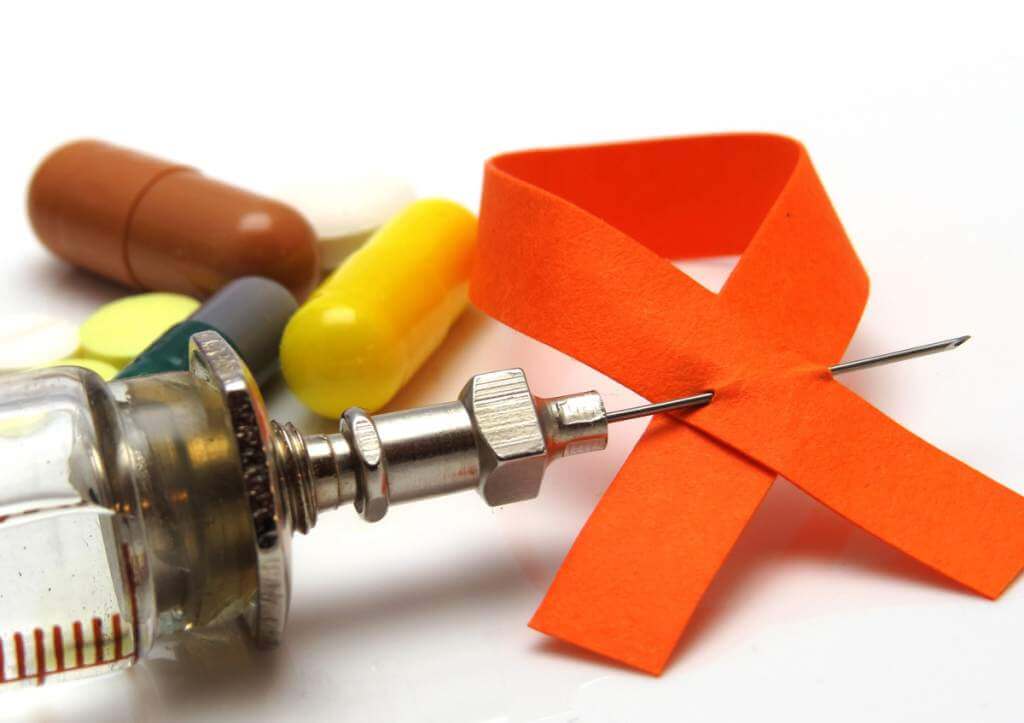AIDS Treatment

The treatment of AIDS constitutes a series of strategies whose purpose is to improve the quality of life of patients infected with HIV.
This treatment is mainly pharmacological, since, to date, there is no other alternative that acts effectively against the infection. In particular, antiretroviral therapy is used against HIV infection.
It should be noted that the treatment of AIDS seeks to help the patient to cope with the variations that affect their state of health but cannot eradicate the disease.
What is antiretroviral therapy?

Antiretroviral therapy consists of administering a set of drugs to the patient in order to control the replication of HIV in the body, to prevent AIDS from developing.
Antiretrovirals are drugs that are used specifically to treat retrovirus infections, such as HIV. In other words, antiretroviral therapy lowers the concentration of the virus in the patient’s body.
Classification of antiretrovirals
There is a wide variety of antiretroviral drugs. The use of one or the other depends, to a great extent, on the clinical situation of the patient.
Antiretroviral drugs for HIV belong to 6 different classes, depending on how they affect the life cycle of this virus:
- NRTIs or nucleoside reverse transcriptase inhibitors
- NNRTIs or non-nucleoside reverse transcriptase inhibitors
- PI or protease inhibitors
- Fusion inhibitors
- Entry inhibitors
- Pharmacokinetic enhancers
- Inhibitors of integrase chain transfer
Treatment can be started with another drug from this group or with another equally effective combination, thus overcoming existing drug resistance.
Currently, certain genetic tests are available to determine if a strain of HIV will be resistant to a particular drug. These techniques allow both to make a more accurate prescription and to make the necessary modifications when the treatment stops giving results.
Important Aspects of AIDS Treatment
The choice of one regimen or another for the treatment of AIDS is linked to different factors to take into account, such as:
- Side effects
- Clinical situation of the patient
- Drug interactions
- Among other aspects of interest
Although these drugs help considerably to improve the quality of life of the patient, they present numerous adverse effects. These may vary according to the combination of drugs chosen and, of course, the patient’s situation.
The most common adverse effects of antiretrovirals are: weakness, malaise, headache, nausea, and diarrhea. In more serious cases, there may be: lesions in the liver and inflammation of the throat and tongue.
When you have HIV, it is recommended to start treatment as soon as possible, regardless of the number of CD4 cells. In this way, it will be possible to prevent the infection from progressing to AIDS in an accelerated way. For this reason the treatment of AIDS must be under medical supervision.
Every three months, the patient should have a blood test to measure lymphocytes and HIV viral load, in order to keep track of the disease. In this way the doctor can evaluate what type of antiretrovirals to take and how to control side effects.
Other treatments
Fortunately, several studies are being done on controlled-release drugs (such as cabotegavir or rilpivirine) for the treatment of AIDS.
These drugs could be administered subcutaneously, every two or three months, thanks to nanotechnology. All this translates into an improvement in the quality of life of the patient.
Therapeutic combinations are also being studied that, instead of being composed of three or more drugs, the amount of constituents is reduced to two drugs, or even a single drug. However, this novelty would reduce adverse effects.
recommendations
All HIV-infected patients are advised to maintain healthy lifestyle habits. This especially includes a good diet based on a diet that contains: zinc, copper, and vitamins B12 and B6.

It is of great importance that patients maintain a healthy body weight. Likewise, they should eat foods that allow them to compensate for the deficiencies they present. In this way, there will be a better response to treatment and therefore, an improvement in the patient.









